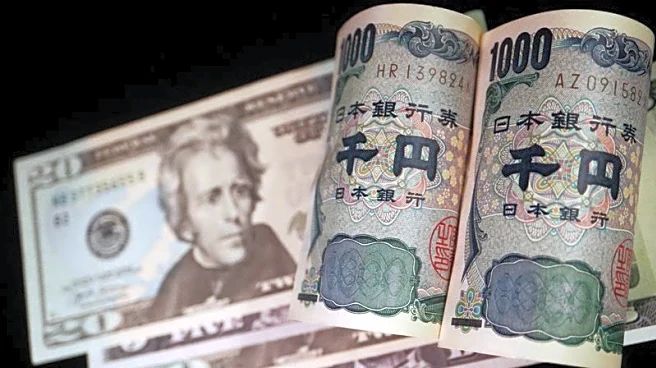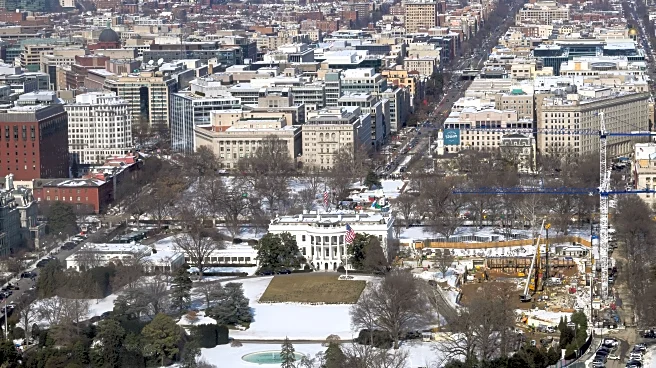Rapid Read • 8 min read
President Trump has implemented new tariffs on merchandise from approximately 70 countries, including Canada, raising the rate on certain products to 35 percent. This move is part of Trump's strategy to rebalance the global trade system, which he argues is unfairly tilted against the U.S. economy. The trade war has seen significant escalation, with China retaliating by imposing tariffs of 10 to 15 percent on select U.S. agricultural products. Despite attempts at de-escalation, such as agreements to lower tariffs with China, the trade landscape remains volatile. The Trump administration has also secured concessions from Japan and the EU, with both agreeing to tariffs on exports to the U.S. and making large purchases of American goods.
AD
The tariffs are intended to generate substantial revenue, estimated to raise over $2 trillion through 2034. However, the economic costs are significant, with projections indicating a reduction in payroll employment by 497,000 jobs by the end of 2025. The U.S. economy is expected to be persistently smaller in the long run due to these tariffs. Despite Trump's promises to revitalize American manufacturing, the sector has seen a decline in employment, contradicting the intended benefits of protective tariffs. The trade war has not resolved the fundamental trade imbalance, with the U.S. trade deficit increasing annually since 2016.
The success or failure of the trade war may depend on developments beyond Trump's current term. Structural challenges in American manufacturing, such as automation and global supply chains, cannot be solved through tariffs alone. The economic costs of sustained trade conflict continue to accumulate, and the durability of new trade agreements remains uncertain. Both sides recognize the need for de-escalation, but fundamental disagreements persist.
The trade war represents a strategic gamble with uncertain long-term payoffs. While tariffs have achieved some tactical objectives, they have largely failed to deliver on strategic promises of manufacturing revival and trade balance improvement. The economic costs are substantial, and the benefits remain largely theoretical or temporary.
AD
More Stories You Might Enjoy












